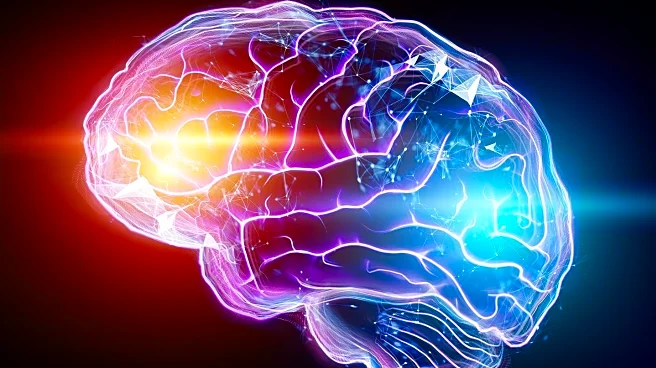What's Happening?
A study conducted by McGill University has found that a brain training program, BrainHQ, can increase the production of acetylcholine, a chemical linked to memory and attention. The study involved 92 participants aged 65 and older, who engaged in cognitive
exercises over 10 weeks. Results showed a 2.3% increase in acetylcholine production in the anterior cingulate cortex among those who used BrainHQ, suggesting potential benefits for cognitive health.
Why It's Important?
As cognitive decline is a natural part of aging, finding ways to maintain brain health is crucial. The study provides evidence that targeted brain training can enhance cognitive function by boosting key neurotransmitters. This could have significant implications for preventing or delaying the onset of dementia and other cognitive disorders. The findings support the use of cognitive exercises as a non-invasive method to improve brain health in older adults.
What's Next?
Further research is needed to explore the long-term effects of brain training on cognitive health and its potential role in dementia prevention. The study's promising results may lead to wider adoption of cognitive training programs in healthcare settings, offering a proactive approach to maintaining cognitive function in aging populations.
















